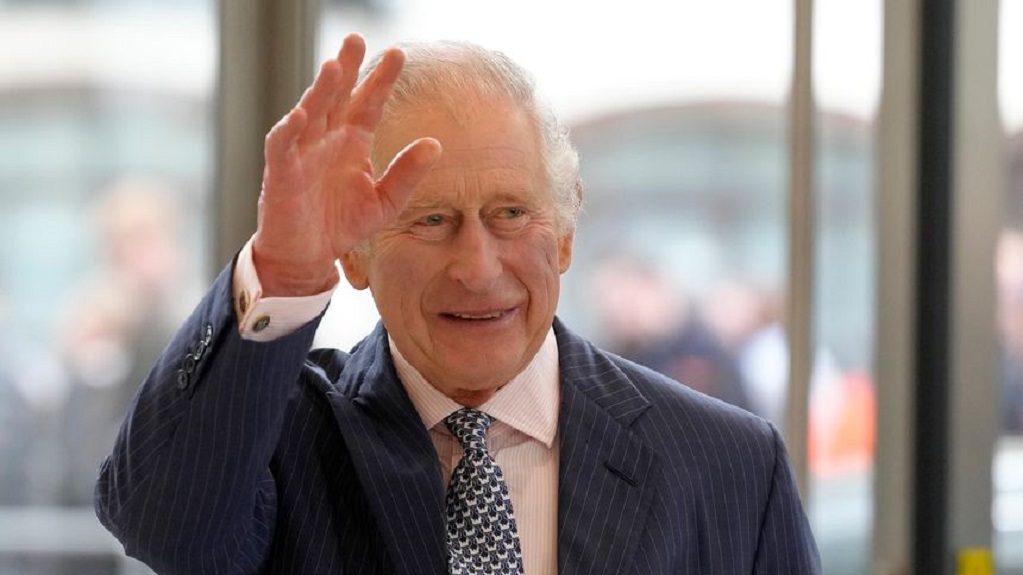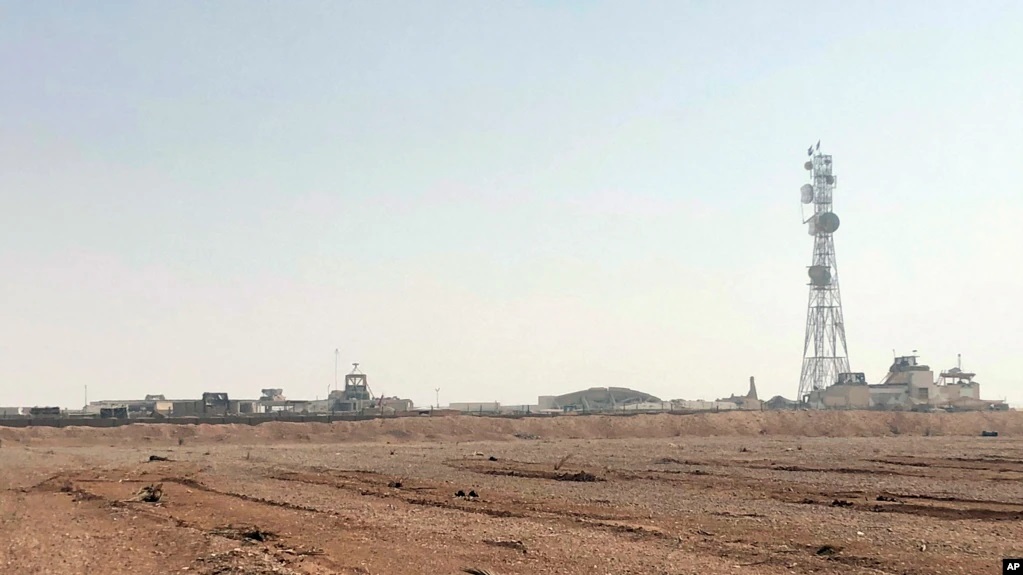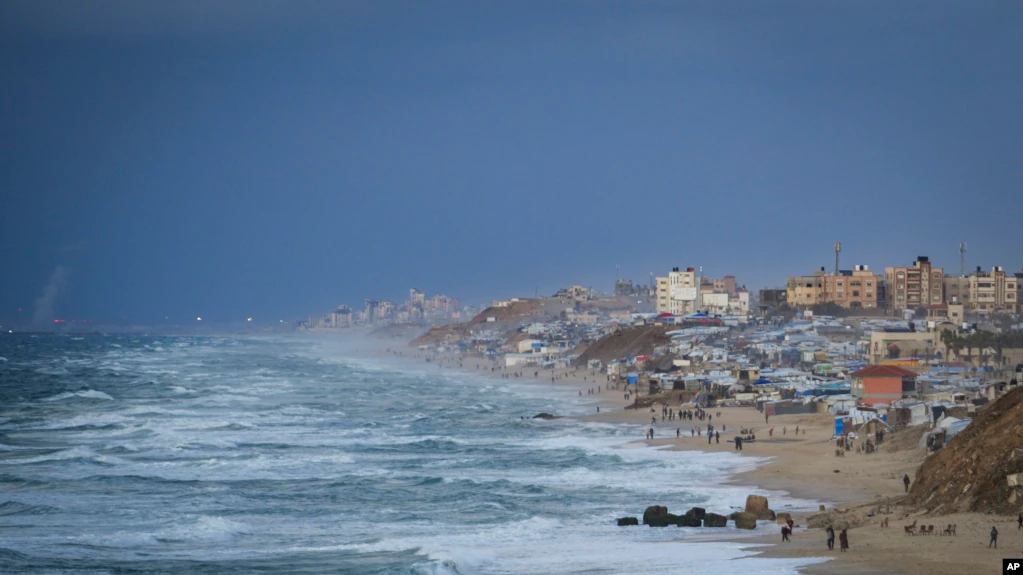Houthis Fire 6 More Anti-Ship Missiles Into Red Sea
Written by worldOneFm on February 6, 2024
PENTAGON — Iranian-backed Houthi militants have once again ignored U.S. calls to stop attacking international shipping lanes or face consequences, this time firing six anti-ship missiles from Houthi-controlled areas of Yemen into the Red Sea, a U.S. official tells VOA.
The official, who spoke on the condition of anonymity, said U.S. naval forces had shot at least one of the missiles down on Tuesday, with others falling into the sea.
According to the British security firm Ambrey, one of the Houthi weapons caused minor damage to the port side of a Barbados-flagged, U.K.-owned cargo ship during Tuesday’s attacks.
The Houthi launches came hours after the U.S. military said it conducted its latest self-defense strikes against two Houthi kamikaze drone boats that were laden with explosives.
U.S. Central Command (CENTCOM), which oversees U.S. forces in the region, said the vessels “presented an imminent threat to U.S. Navy ships and merchant vessels in the region.”
“We’re not at war with the Houthis. We’re not seeking to go to war with the Houthis, but if they continue the attacks, we will continue to disrupt and degrade their capabilities,” Pentagon press secretary Major General Pat Ryder told reporters on Monday.
U.S. strikes on Sunday hit multiple Houthi cruise missiles. On Saturday, the U.S. and Britain struck at least 36 Houthi targets in Yemen.
The Houthis have said their Red Sea attacks are in solidarity with the people of Gaza and vowed to continue, despite the U.S. and British strikes.
“Our war against Israel is moral because its goal is to stop the crimes of genocide in Gaza and allow the entry of food, medicine, and fuel to its besieged residents, and this goal represents the will of all the free people of the world,” Mohammed al-Bukhaiti, a Houthi official, wrote Monday on X.
Meanwhile, the latest wave of U.S. airstrikes in Iraq, aimed at pounding targets associated with almost 170 attacks by Iranian-backed militias on U.S. forces in the region, appears to be expanding the fissure between Washington and Baghdad.
Friday’s airstrikes targeted three locations in Iraq, as well as another four in Syria, and destroyed more than 80 individual targets, ranging from command-and-control centers and intelligence hubs to missile and drone storage facilities, according to the latest U.S. assessments.
The Pentagon said Monday an unspecified number of militia members were also likely killed or wounded, though it ruled out any deaths of Iranian officials or operatives.
But while U.S. officials defended the strikes as necessary following a drone attack that killed three U.S. soldiers at a base in Jordan last month, Iraqi officials have voiced increased anger, summoning the U.S. chargé d’affaires in Baghdad to protest the U.S. strikes after alleging some of the targets were part of the government’s own security forces.
Iraqi Prime Minister Mohamed Shia al-Sudani declared an official period of mourning for those killed in the bombings and raised the prospect of repercussions in advance of a meeting with a member of Iran’s Supreme National Security Council in Baghdad on Monday.
Iraqi officials expressed additional anger, arguing that contrary to initial U.S. statements, Baghdad was not alerted to the strikes ahead of time.
The U.S. State Department Monday admitted Iraq was not given any warning but added the U.S. strikes should not have come as a surprise.
“Every country in the region understood that there would be a response after the deaths of our soldiers,” State Department deputy spokesperson Vedant Patel told reporters on Monday.
“As for this specific response on Friday, there was not a prenotification,” he said. “We informed the Iraqis immediately after the strikes occurred.”
The Pentagon on Monday also pushed back against some of the Iraqi assertions.
“As we conduct these strikes, we are very focused on Iranian-backed proxy groups,” Ryder said.
“That is our focus. It’s not on striking ISF, or Iraqi Security Forces, or personnel that are part of the legitimate Iraqi security forces,” he said. “We’re striking terrorist groups that are supported by the IRGC [Iran’s Islamic Revolutionary Guard Corps].”
Ryder added, however, that as of now, the U.S. has no plans for a long-term military campaign against the militias in Iraq and Syria.
The U.S. has about 2,500 troops in Iraq tasked with advising and assisting Iraqi security forces as they pursue the remnants of the Islamic State terror group, also known as ISIS or Daesh.
And while talks between the U.S. and Iraq are underway to eventually reduce the U.S. military footprint and transition from the counter-IS mission to what officials describe as more traditional military-to-military relationship with Baghdad, the process has been complicated by the attacks.
U.S. military officials told VOA there have been at least two additional attacks by the Iranian-backed militias active in both Iraq and Syria, following the U.S. airstrikes on Friday.
The most recent attack came Sunday, when a one-way attack drone hit the base at the Omar Oil Field near Deir el-Zour, causing multiple casualties among U.S.-backed, Kurdish-led Syrian Democratic Forces (SDF).
SDF spokesperson Farhad Shami said on social media that the drone attack killed six SDF fighters.
The SDF base is located near the U.S. position known as Green Village.
The U.S. also confirmed an attack by Iran-backed militias on Friday, when multiple rockets targeted Mission Support Site Euphrates base. No injuries or damage were reported.
The U.S. initially reported a third attack early Monday on Mission Support Site Euphrates. But officials later ruled it out, saying there was some confusion due to nearby activity by the SDF.
The latest attacks are the first since the U.S. unleashed a series of airstrikes that hit 85 targets at seven locations in Iraq and Syria late Friday, dropping more than 125 precision munitions in about half an hour.
Iranian officials have condemned the U.S. strikes, calling them a violation of Syrian and Iraqi sovereignty. Iranian Foreign Ministry spokesperson Nasser Kanaani further described the U.S. strikes as “a serious strategic mistake.”
Syrian opposition activist say at least 29 fighters were killed in Syria, while Iraqi officials said at least 16 militia members were killed, with another 36 wounded.
Russia seized on the U.S. retaliatory strikes in Iraq and Syria to call for an urgent session of the U.N. Security Council Monday to press for international condemnation of Washington.
“We decisively condemn this new brazen act of aggression of the U.S. against a sovereign state, creating further risks and increasing the level of instability in a region that is already on fire,” Ambassador Vassily Nebenzia told the council.
Several council members expressed concern at both the attacks on U.S. personnel and the retaliatory strikes, urging maximum restraint to avoid further escalation.
Syria’s envoy rejected what he said are Washington’s “flimsy claims” to justify its strikes, while Iran’s ambassador appeared to try to distance Tehran, saying “resistance groups” in the region are independent and make their own decisions.
Iraq’s representative criticized the U.S. strikes, saying his government will not allow its territory to be used for score settling.
State Department bureau chief Nike Ching and U.N. correspondent Margaret Besheer contributed to this report. Some information came from The Associated Press, Reuters and Agence France-Presse.







